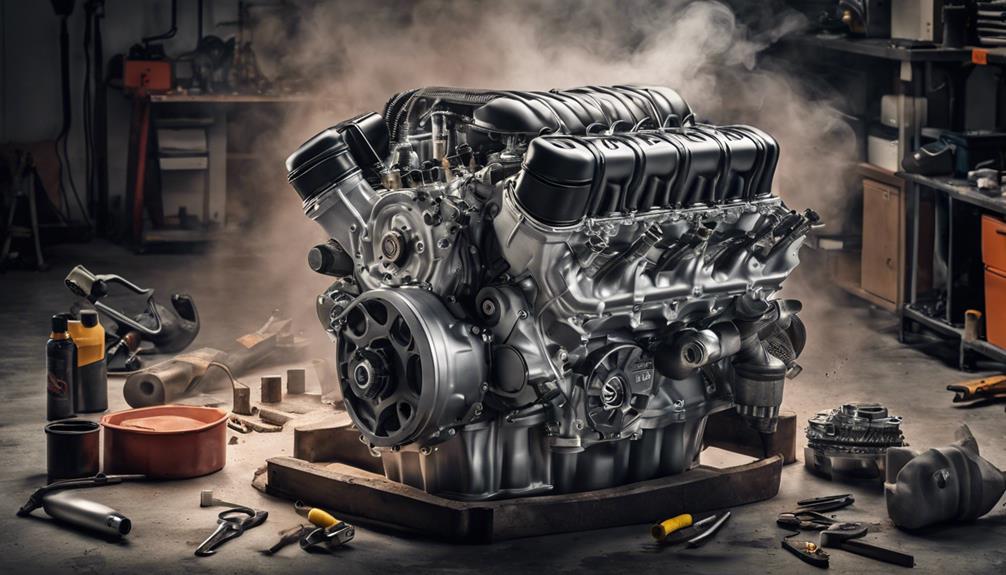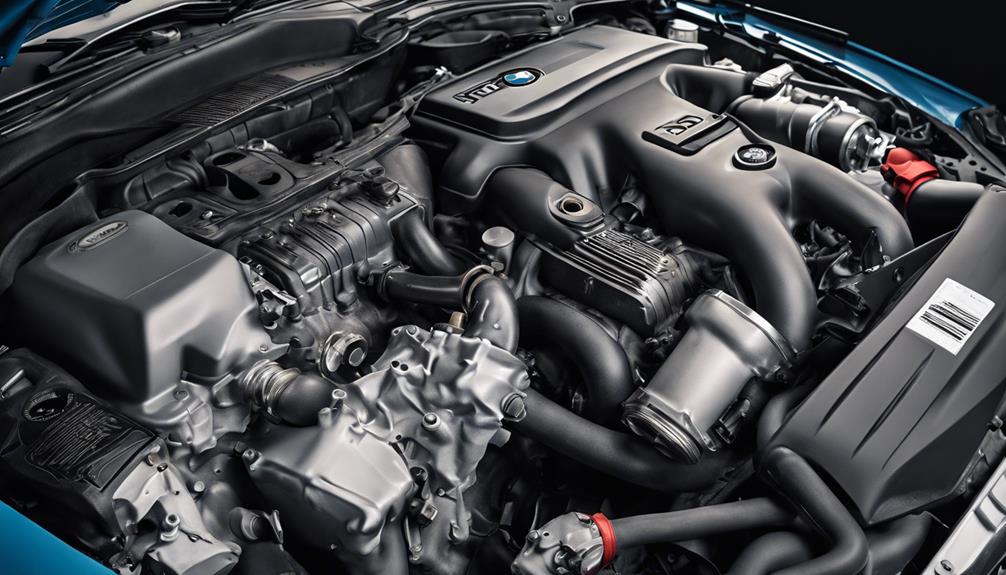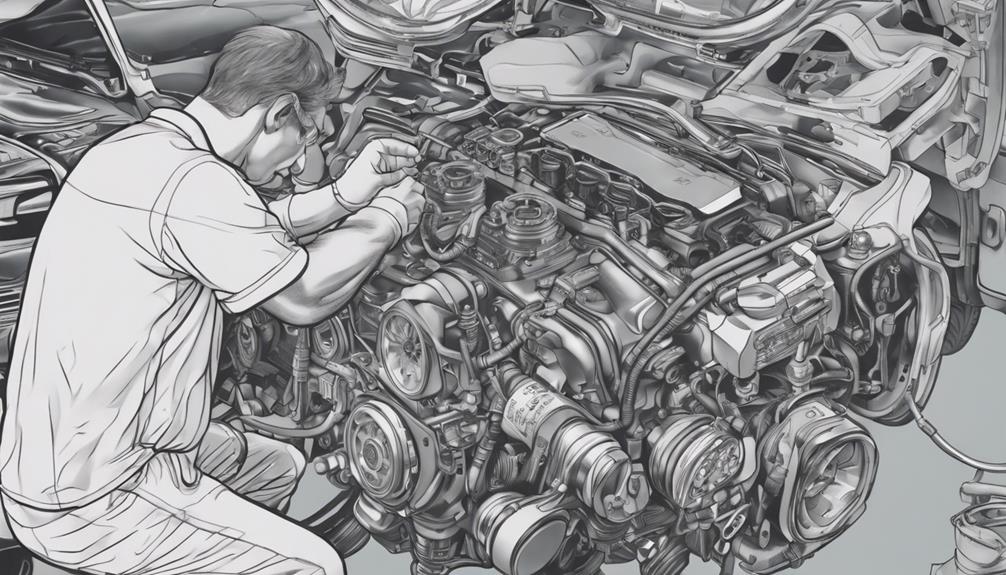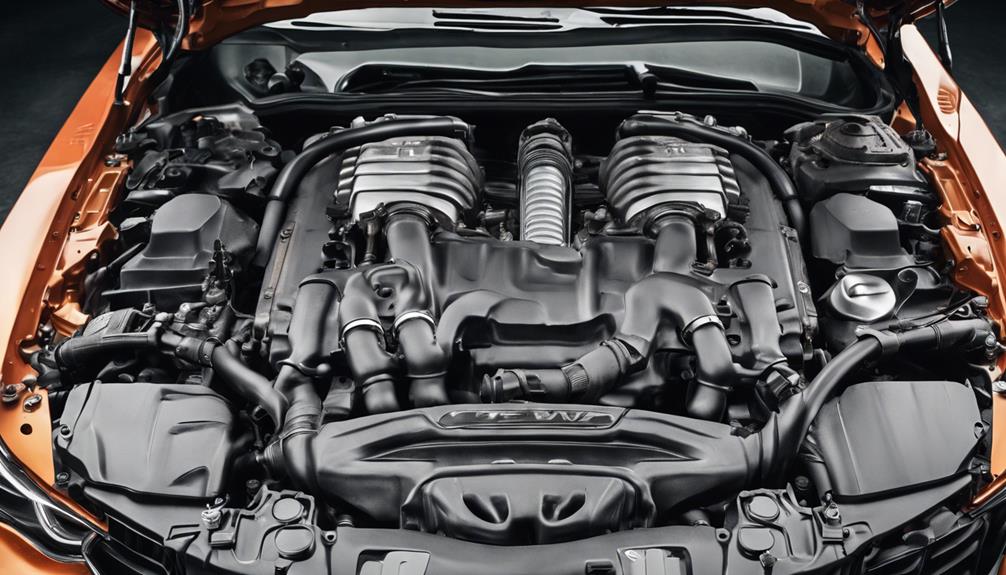If you drive a BMW 316i, watch out for timing chain issues, notorious in the F30 model with a faulty tensioner leading to costly repairs. Keep an eye on oil leaks from the oil filter, seal, and pan, and take preventive measures to avoid trouble. Electronic component failures, from alternators to sensors, can wreak havoc, requiring expertise for diagnosis. Cooling system malfunctions could spell disaster, so be vigilant for leaks to prevent engine damage. Lastly, never ignore warning lights or sounds, as they could signal serious issues needing immediate attention.
Key Takeaways
- Timing chain issues prevalent in BMW 316i F30 model.
- Oil leaks common in inline-four engine, monitor key components.
- Electronic component failures impact critical systems, need specialized diagnosis.
- Cooling system malfunctions can harm engine, watch for leaks.
- Immediate attention needed for warning lights and sounds to prevent costly repairs.
Timing Chain Issues
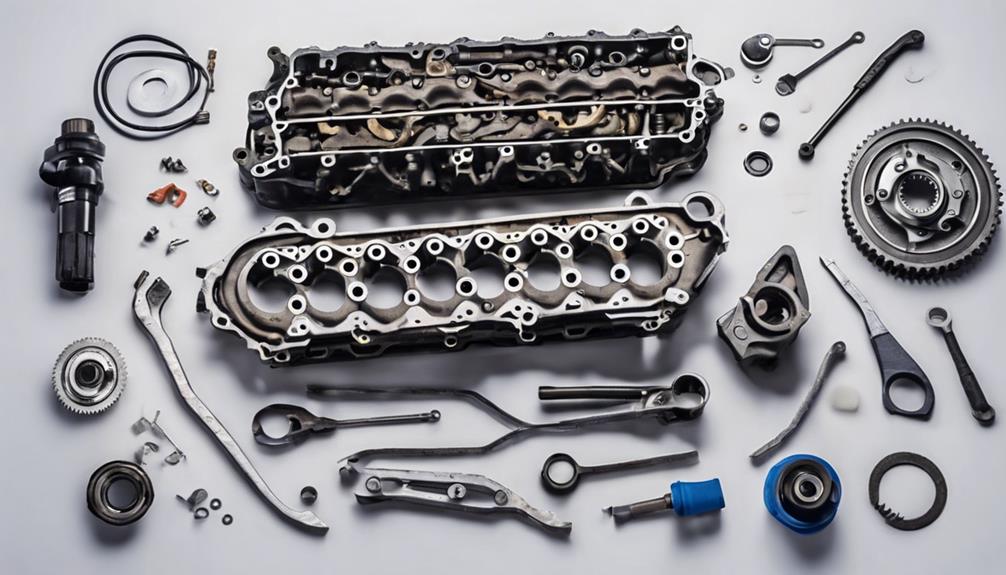
If you've ever owned a BMW 316i, chances are you've encountered the notorious timing chain issues that plagued the F30 model. These timing chain problems were more than just a nuisance; they led to significant headaches for many owners. A class-action lawsuit was even filed due to the frequent failures experienced in this area. The faulty tensioner was identified as the main culprit behind these issues, causing a domino effect of problems throughout the engine.
Owners faced costly repairs and inconvenience as a result of these common problems. The fact that a lawsuit was necessary to address these issues speaks volumes about the severity of the situation. It wasn't just a minor hiccup; it was a major flaw in the design and engineering of the BMW 316i F30 model.
Oil Leaks
Oil leaks in the BMW 316i are a common issue attributed to the inline-four engine's vulnerability to developing leaks. When it comes to your BMW's oil system, here are some key points to keep in mind:
- Key Culprits: The high risk of oil leaks can be attributed to engine components like the oil filter, oil seal, and oil pan.
- Preventive Measures: Addressing oil leaks promptly is essential to prevent potential engine damage and maintain performance.
- Regular Checks: Make sure to routinely check for oil leaks to catch any issues early on.
- Professional Assistance: Seeking professional help for diagnosing and repairing oil leaks is recommended for effective resolution.
Don't let oil leaks put a damper on your BMW driving experience. Stay on top of maintenance, keep an eye out for leaks, and address them promptly to make sure your BMW 316i stays in top condition.
Electronic Component Failures
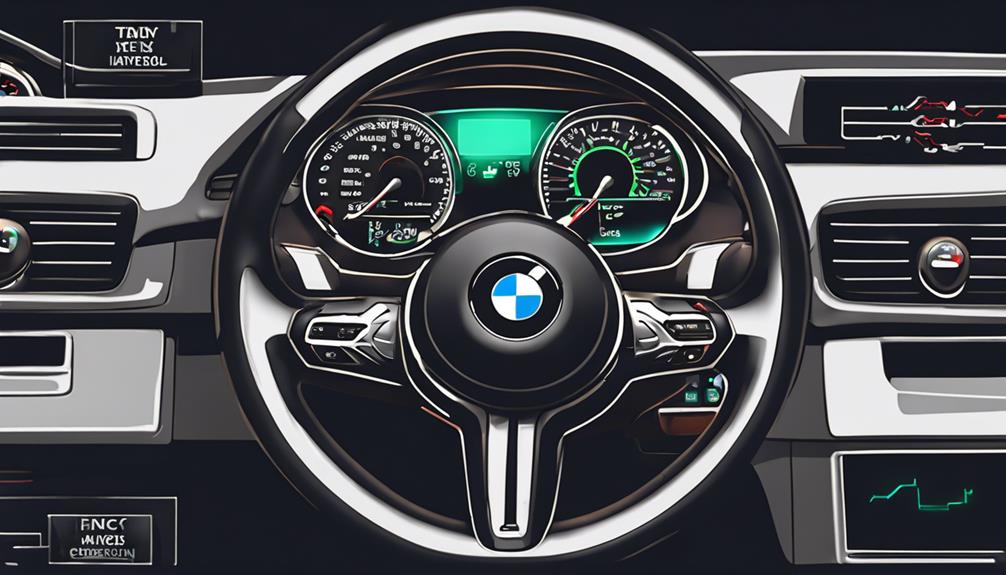
Electronic component failures in the BMW 316i can lead to various issues impacting critical systems like the infotainment, sensors, and electronic controls. When these components fail, you may experience warning lights illuminating on the dashboard, loss of functionality in key systems, and erratic behavior from your car. Common culprits for these failures include the alternator, battery, sensors, and control modules.
Diagnosing these electronic component failures often requires the expertise of a mechanic equipped with specialized diagnostic tools. These tools allow them to pinpoint the exact issue swiftly, saving you time and potential headaches. Promptly addressing these failures is essential to prevent further damage and make sure your car operates smoothly.
Cooling System Malfunctions
Cooling system malfunctions in the BMW 316i can spell trouble for your engine if left unchecked. Here are some key pointers to keep in mind:
- Coolant Leak: Watch out for any signs of coolant leaks in the radiator or other cooling system components. These leaks can lead to a loss of coolant, causing your engine to overheat.
- Overheating Problems: Ignoring cooling system issues can result in your engine overheating. This can lead to severe damage such as warped cylinder heads and pistons, causing costly repairs.
- Regular Checks: It's essential to regularly inspect your BMW 316i's cooling system to catch any problems early on. Prevention is always better than dealing with a malfunction later.
- Prompt Action: Address coolant leaks promptly. Taking swift action can help maintain your vehicle's performance and prevent long-term damages. Remember, a stitch in time saves nine when it comes to your cooling system.
Stay cool by keeping an eye on your BMW 316i's cooling system to avoid running into hot water with engine troubles.
Addressing Warning Lights and Sounds

When warning lights illuminate or unusual sounds emanate from your BMW 316i, immediate attention is crucial to prevent potential engine or component failures. Ignoring these indicators could lead to costly repairs and impact your driving experience. To help you better understand these warning signs, here is a table outlining common warning lights and sounds you may encounter:
| Warning Lights/Sounds | Possible Issues | Action Needed |
|---|---|---|
| Engine Light | Engine misfire, sensor issues | Check engine codes |
| Brake Squealing | Worn brake pads or rotors | Replace brake components |
| Steering Wheel Vibration | Wheel misalignment, tire issues | Check alignment and tire pressure |
| Whining Noise | Transmission or power steering problems | Inspect transmission and steering system |
Frequently Asked Questions
Is the BMW 316i Engine Reliable?
Yes, the BMW 316i engine is generally reliable when well-maintained. Regular servicing and thorough inspections are key. High mileage may lead to more wear, so check those service records and consult a mechanic.
Is BMW 316i 2015 a Good Car?
You bet the BMW 316i 2015 is a good car! With its reputation for reliability and performance, it's a solid choice. Just stay on top of maintenance to keep it running smoothly for years.
What Engine Does a BMW 316i Have?
The BMW 316i comes with a 1.6-liter inline-four petrol engine, part of BMW's N13 engine family. It strikes a balance between performance and fuel efficiency, boasting around 136 horsepower and 220 Nm of torque for a smooth driving experience.
What Is the Top Speed of the BMW 3 Series 316i?
You can push your BMW 3 Series 316i to a top speed of 210 km/h, thanks to its aerodynamic design and 1.6-liter engine. The acceleration from 0 to 100 km/h in about 8.9 seconds gives you a taste of its performance capabilities.






